QuestionThanks for your fast response. Last year when the problem developed, we brought him to the vet for a full physical. Not finding anything wrong with him, he did prescribe something for sore joints/arthritis but it didn't stop the problem so we stopped giving it to him once the prescription ran out. Thanks for your efforts to help, we will continue to be puzzled.
-------------------------
Followup To
Question -
I have a nine year old yellow lab. He has been an outdoor dog for 7 1/2 years of his life and when we moved recently he became an indoor dog. He has transistioned beautifully! So, here is the problem. Mainly during the winter, if someone walks by him too quickly, literally pets him the wrong way, or he runs out the back door too fast, he often times whines as if someone is beating him terribly. I say it mainly happens in the winter because it becomes more frequent when we turn our heat on. We have oil heat and am wondering if there might be any correlation. I know this sounds bizarre, but any help you can give on this situation would be greatly appreciated.
Answer -
One of the nice things about Labs is that they are fairly quiet, neither barking or whining much without cause. Nine years seems a little young to be having arthritis, but it is definitely more of a problem in cooler weather. Has he had a vet check this year? Most changes in behavior call for a good physical exam alerting the vet to the problem. The vet might prescribe some pain killers. Don't give him anything on your own except maybe buffered Aspirin. None of the newer over the counter stuff.
AnswerMaybe I ignored the clue about the heat. Oil or gas forced air heat tends to be dry. It is possible it is drying his skin. I would minimize baths, they dry the skin too. Instead brush, brush, brush. Another possibility related to the dryness is static electricity. Some times I zap our dogs, often right on the moist nose. For an older dog moved inside, it could be a disturbing new thing.

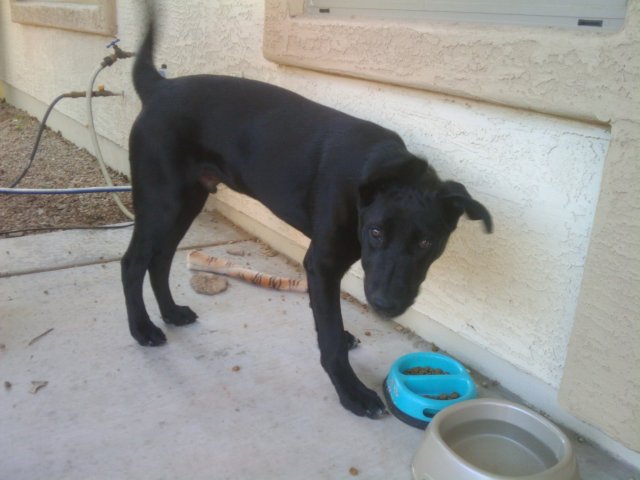 Black Lab age/weight concern
Question
Okimasu
I have a black lab mix. He has a small
Black Lab age/weight concern
Question
Okimasu
I have a black lab mix. He has a small
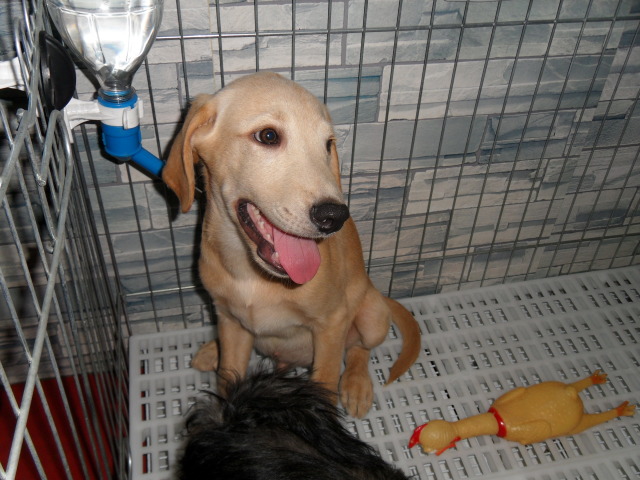 Is my dog a pure-bred lab?
Question
Sort of top view
Hi. I recently received
Is my dog a pure-bred lab?
Question
Sort of top view
Hi. I recently received
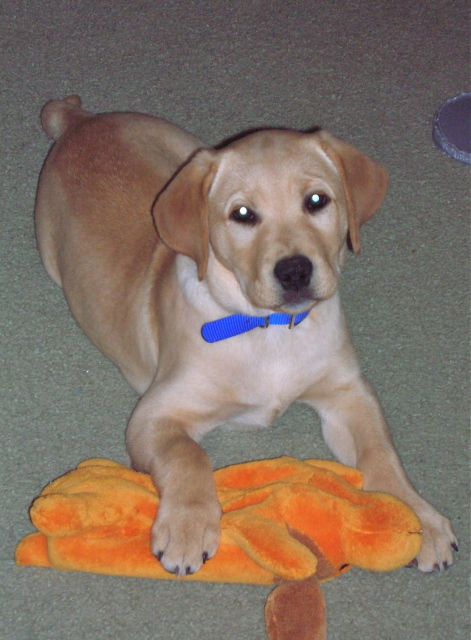 constant puppy barking
Question
My 13 week old female yellow lab barks consta
constant puppy barking
Question
My 13 week old female yellow lab barks consta
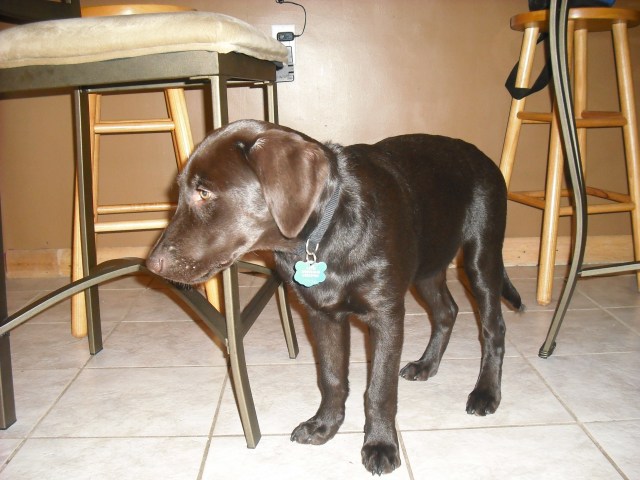 is my lab too small
Question
Reese
I have a 19 week old Male chocolate lab.
is my lab too small
Question
Reese
I have a 19 week old Male chocolate lab.
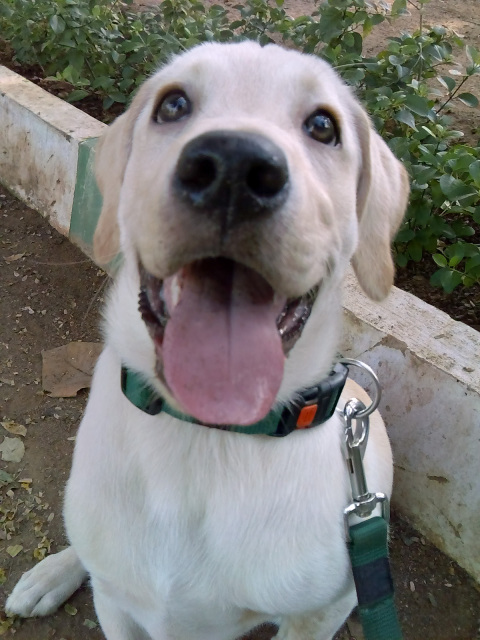 Hyper active Labrador Pupp.
Question
Benji
Hello Jen,
&nbs
Hyper active Labrador Pupp.
Question
Benji
Hello Jen,
&nbs